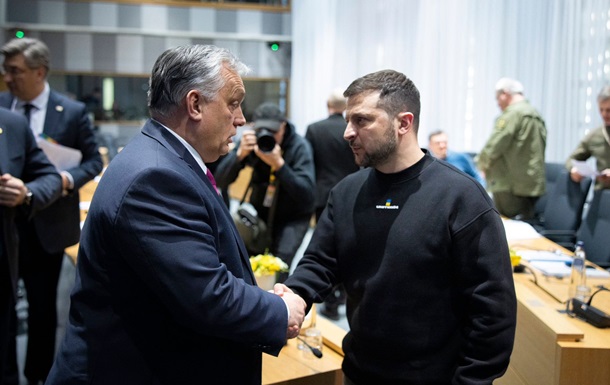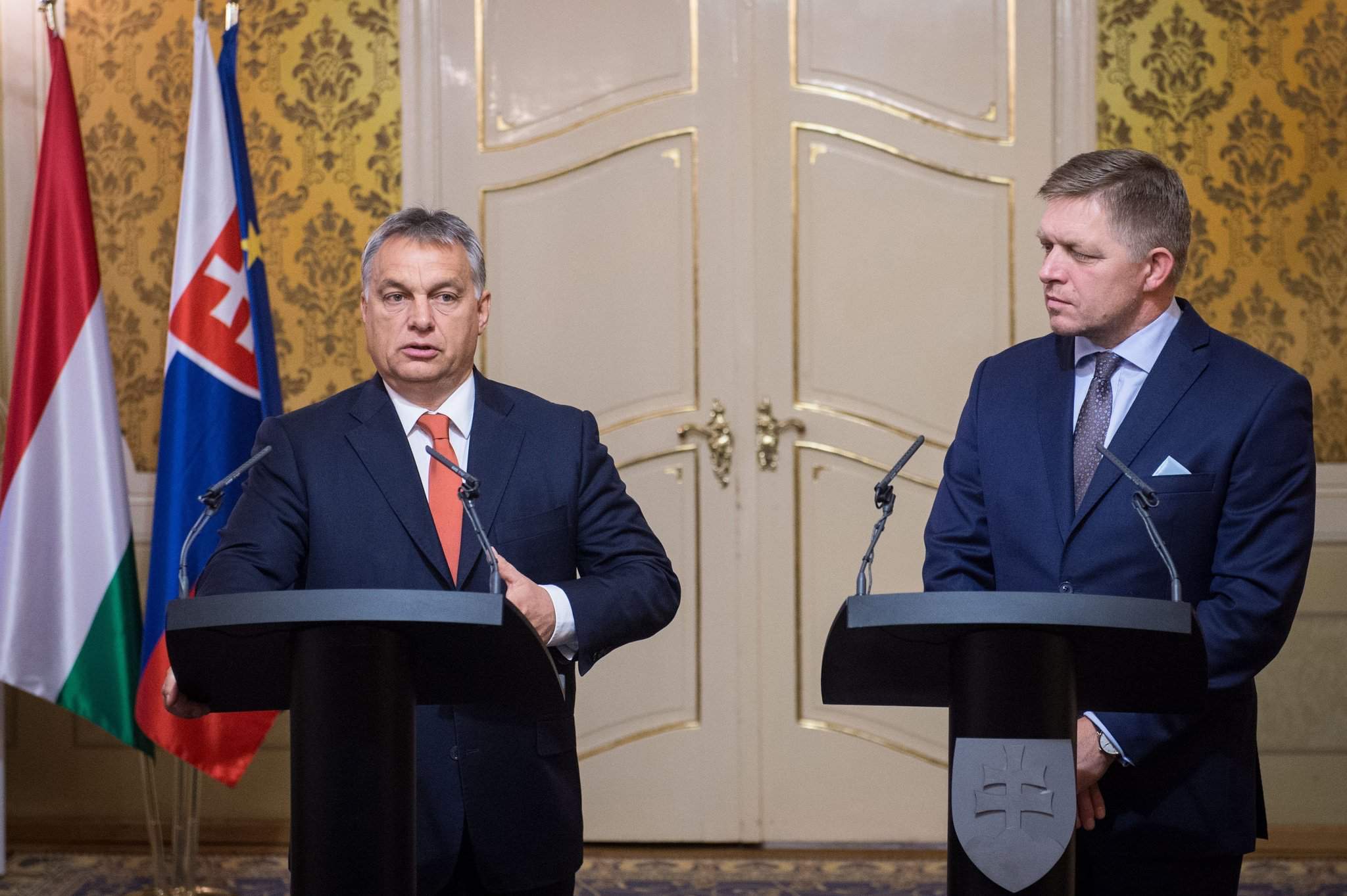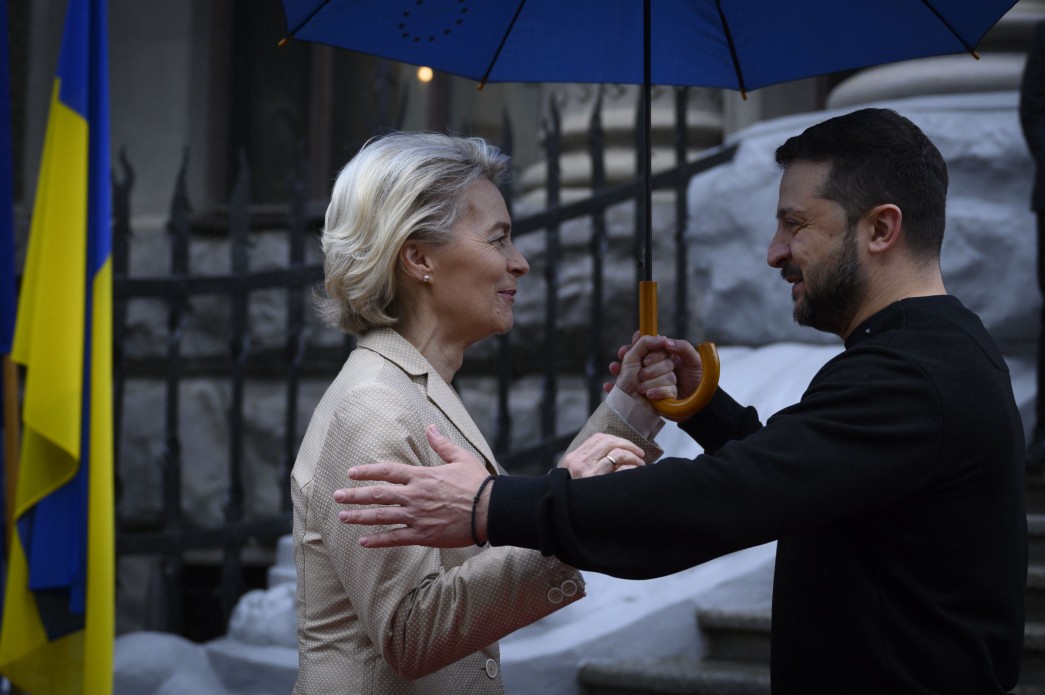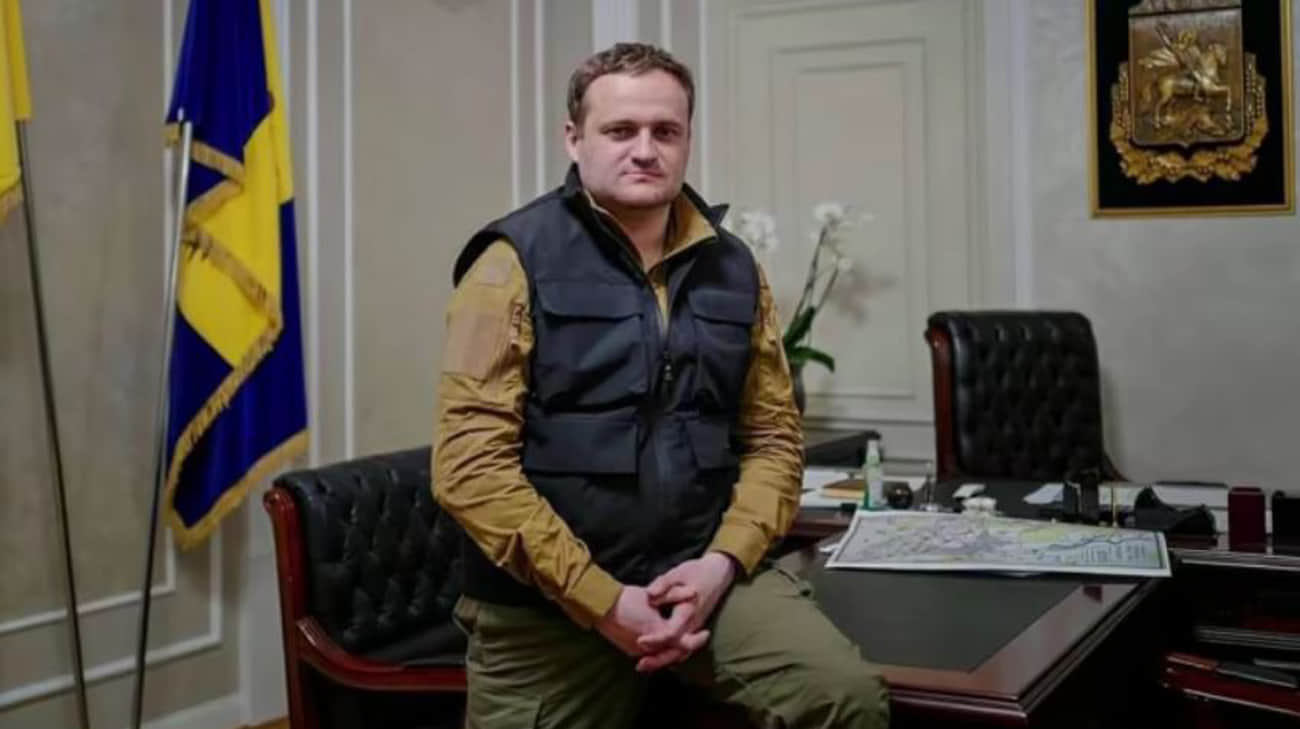Orban’s veto looms over Ukraine’s EU bid ahead of crucial summit
As EU leaders prepare to converge in Brussels, unblocked funds may persuade Hungary to approve crucial financial aid for Ukraine, but its membership bid still hangs in the air The post Orban’s veto looms over Ukraine’s EU bid ahead of crucial summit appeared first on Euromaidan Press.

The EU summit on 14-15 December 2023 will decide on three critical Ukrainian issues: financial and military aid and the start of negotiations on Ukraine joining the EU. But Hungarian leader Viktor Orbán firmly said he will “take down membership from the agenda” despite previous talks with Ukraine and even an appeal from the Hungarian community in Ukraine.
Why the summit’s decisions matter
On 8 November, the European Commission recommended starting negotiations with Ukraine and Moldova on joining the EU, but they can only start with the approval of all EU members. EU leaders will discuss the issue at the EU summit on 14-15 December. Crucial financial decisions are also on the agenda: the provision of € 50 billion of economic support in the following four years, and the allocation of another € 20 billion for the Ukrainian army.
Both the aid and EU membership issues brought to the summit are crucial for Ukraine’s long-term ability to defend itself against Russian aggression.
Regarding weapons, Ukraine has substantially increased domestic production of various types of ammunition, artillery, and especially drones. However, as Ukrainian Minister of Strategic Industries Oleksandr Kamyshin put it, no matter how rapidly Ukraine increases artillery shell production, it will remain dependent on Western supplies, at least in the short term, given the high fire intensity.
Even regarding such items as drones, where Ukraine has already managed to outweigh imports by domestic production, the aid provided by allies is crucial to increasing combat capabilities as soon as possible and achieving an advantage over Russian forces.
Regarding financial aid, the EU was and is expected to remain Ukraine’s main financial donor. Currently, all Ukrainian taxes paid to the state budget are spent on defense. It means that all other expenditures, such as salaries to medical and education workers, fall within the budget deficit, which is expected to be at 20.4% of GDP or UAH 1.58 trillion ($44 bn).
Ukraine hopes to cover the largest part of this deficit sum by grants and borrowing from partner countries. Partners such as the IMF, the World Bank, the UK, Japan, and others have committed to cover about 30% of this sum for 2024. The most significant part of the remaining sum is expected to be covered by the EU and US grants.
Ukraine squeezes every last drop for defense in 2024 budget, Russia still 2.5x more
The sum is not just support for Ukrainian crucial expenditures but a direct contribution to the country’s ability to defend itself. A lack of financial support would mean that the military budget should also be cut.
Ukraine’s EU membership is strategically the most important decision since it would significantly empower Ukraine’s economy, strengthen its resources, and reduce the need for external aid. It will also simplify the transit of crucial goods to and from Ukraine, further empowering Ukraine’s economy.
The recent border blockade by Polish and Slovakian protesters, who are likely linked to Russia, showed that the current links between Ukraine and the EU are still fragile, both logistically and politically. Due to only the recent Polish ban, Ukraine’s economy lost € 400 million, meaning this should again be partially compensated by external aid to maintain the county’s defense and other crucial expenditures. Moreover, all non-state volunteer military deliveries to Ukraine were also stuck on the border due to the blockade.
Ukraine’s EU membership would solve all these problems, making Ukraine an integral part of the EU economic zone. At the same time, some companies, such as Polish carriers or grain and corn producers, lobby the opposite for their personal interests.
Orbán’s statement and its context
A day before the EU summit, Hungarian Prime Minister Viktor Orbán reiterated his position, saying that Hungary would block opening accession negotiations with Ukraine.
“The European Union is getting ready to make a terrible mistake, and they have to be prevented in this – even if 26 want to do this, and only we are opposed,” Orbán said in an interview with Mandiner, a pro-government Hungarian outlet.
He also said that Ukaine’s membership in the EU would harm other states of the bloc economically:
“That’s why I say, take down membership from the agenda, Hungary will insist on that, so that question is not worth seriously debating, that route is closed, because Hungary doesn’t agree to that. But let’s speak sensibly about the framework of a strategic partnership, let’s give the Ukrainians things in which we geostrategically strengthen them.”
Such statements of Orbán are not new and fall within his general anti-Ukrainian policy. In particular, Hungary doesn’t allow the transfer of any military cargo for Ukraine through its territory, let alone providing any military to Ukraine. This policy especially harmed Ukraine during the latest border blockade in Poland and Slovakia by protesters, when only the Romanian border remained open for transit:
Due to the border blockade by the Polish & Slovakian protesters & the Hungarian ban, it now takes 2 weeks to deliver military cargo from the EU to Ukraine
Ukrainian servicemen and volunteer Madiar, who is currently delivering boats, explained the situation
More:… pic.twitter.com/cZ6DQcPIn3
— Euromaidan Press (@EuromaidanPress) December 4, 2023
Orbán never explained precisely why he was against aid to Ukraine and Ukraine’s EU accession. At the same time, he negotiated exemptions for his country in EU sanctions, such as on the boycott of Russian oil, and repeatedly voiced harsh criticism of sanctions against Russia.
Ahead of the EU summit, Ukraine’s president Volodymyr Zelenskyy met with Orbán briefly at the inauguration ceremony of the newly elected president of Argentina on 10 December 2023. According to Zelenskyy, the conversation was “as frank as possible.”
During the press brief a few days later, Zelenskyy said he asked Orbán “to give at least one reason why Ukraine shouldn’t become the EU member.” “Only one reason, and I’m waiting for an answer,” Zelenskyy stressed.
Orbán didn’t provide such an answer during his latest interview about the upcoming summit. Yet, during his previous critical remarks about Ukraine, Orbán mostly talked about the rights of the Hungarian community in Ukraine, which were allegedly suppressed. As it turned out, this argument was completely made up since the Hungarian community in Ukraine itself denied it faced discrimination, while the recent laws have protected their rights legally.
Appeal from Hungarians living in Ukraine to Orbán to support Ukraine’s EU membership
On 11 December 2023, the leaders of the Hungarian communities of the Transcarpathia region in Ukraine appealed to the Chairman of the European Council, Charles Michel, and the Prime Minister of Hungary, Viktor Orbán, with a request to support the start of negotiations on Ukraine’s accession to the EU.
The appeal was signed by ethnic Hungarians living in Ukraine, including Zoltan Babiak, head of the Berehiv municipality, Karlo Rezes, head of the Berehiv district council, Laslo Zubanych, head of the Democratic Union of Hungarians of Ukraine, Yosyp Rezes, head of the Ukrainian-Hungarian Regional Youth Development Foundation and Yudita Petei, member of the Transcarpathian Oblast Council.
“We, the representatives of the Hungarian national community of Transcarpathia, are addressing you with great hope and a request to support the decision to open negotiations on Ukraine’s membership in the European Union, scheduled for December 14-15, 2023,” the appeal reads.
“Over the past year, Ukraine has demonstrated significant progress in implementing the recommendations of the European Commission regarding the rights of national minorities. The new draft law adopted by the Ukrainian parliament significantly reflects the interests of national minorities and has our full support… We strongly urge all leaders of the EU member states to continue supporting Ukraine on the path of European integration.”
Orbán sent a letter in response to the appeal where he assured that his government “will do everything in its power to protect the rights of the Hungarian community in Ukraine” and reiterated that the European Commission was unable to properly prepare the issue of Ukraine’s accession to the EU and, therefore, he would not support this decision.
According to Orbán’s spokesman, Bertalan Havashi, Orbán insists that instead of EU membership, a “strategic partnership” should be proposed to Ukraine.
This alternative is unacceptable for Ukrainians since EU membership has a record support of 84% of Ukraine. EU membership is seen not only as an accession to the economic union but also as a symbolic recognition of Ukraine as an equal among other European states, contrary to Russian imperial ambitions.
Ukraine’s diplomacy with Hungary
On 11 December 2023, Minister of Foreign Affairs of Ukraine Dmytro Kuleba met with his Hungarian counterpart Péter Szijjártó for the first time since the beginning of the full-scale Russo-Ukrainian war in 2022.
Also, several European leaders, including the French president Emmanuel Macron and the president of the European Council, Charles Michel, met with Orbán earlier in December, trying to rescue a plan to begin EU accession negotiations with Ukraine and avert a possible Hungarian veto.
Kuleba said they talked with Szijjártó for an hour, and “there was a very long, sincere conversation.” He also stressed that Ukraine and Hungary “have a common future in Europe. We have to get there as soon as possible. Together.”
On 12 December 2023, Kuleba also hinted that Hungary is not against Ukraine’s membership in principle but only wants to thoroughly assess the consequences of the membership and that there still is a “window of opportunity” for Ukraine during the upcoming summit.
“The course of history cannot be stopped, and history moves very simply – Ukraine will be a member of the European Union. It is only a matter of time and price. And our task with you is to make the price as low as possible and the time as short as possible,” Kuleba added.
Slovakia and Austria also doubt that Ukraine should become an EU member
The Prime Minister of Slovakia, Robert Fico, said that he considers Ukraine “not ready” to start negotiations on joining the EU. Still, he would not block this “political decision” at the EU summit.

Chancellor of Austria Karl Neghammer also said that his country is not ready to support the beginning of negotiations on Ukraine’s membership in the EU under the current conditions, arguing that no one should have special conditions for entry. He said Ukraine shouldn’t have an “accelerated procedure” for EU accession but follow the ordinary procedure, like the Western Balkans. Neghammer also said that the EU itself should be reformed to accept new members.
He didn’t specify what exactly he meant by “accelerated” or “ordinary” procedure for Ukraine. According to the November report of the European Commission, in which it recommended to begin accession talks with Ukraine, the country fully implemented four out of seven steps that the European Commission previously required, while the other three were partially implemented.
Brussels backs EU membership talks for Ukraine. Here’s what happens next
Ukraine’s progress towards EU requirements
In particular, Ukraine:
- adopted necessary legislation regarding the selection procedure of judges of the Constitutional Court of Ukraine, by the recommendations of the Venice Commission;
- completed the integrity check of candidates for membership of the High Council of Justice and creation of the High Qualification Commission of Judges of Ukraine;
- adopted the anti-money laundering legislation with FATF standards;
- conducted media industry reform, bringing Ukrainian legislation into line with the EU Directive on media services.
The country still has to expand the powers of the National Agency on Corruption Prevention, which is responsible for checking the property of state officials, amend legislation on language and minorities to ensure the rights of national minorities, and adopt the necessary laws on lobbying in accordance with EU standards.
The legislation necessary to complete the remaining three requirements is currently being drafted in Ukraine’s Cabinet and Parliament and is expected to be adopted in the next few months.
On 28 November 2023, European Commission President Ursula von der Leyen told Politico that Ukraine had fulfilled “almost” all the requirements set out by the EU to start accession talks.
“To see the deep and structural reforms that Ukraine is doing while fighting an existential war is to me deeply impressing,” von der Leyen said.
In total, since 2014, Ukraine has implemented numerous reforms, including decentralization, procurement reform, anti-corruption, and judicial reforms, establishing a high level of transparency over the procurement process, decentralization of finances, and close monitoring of state officials’ income.

New negotiating framework?
Is it possible that the EU would adopt a new negotiating framework for Ukraine. The framework has already changed several times in EU history.
The negotiating framework for Albania and North Macedonia differs from the one in effect for Serbia and Montenegro. And they have it also different from the one which was for Türkiye. According to media reports, it is possible the EU will change the negotiations’ framework for Ukraine as well.
One of the current ideas is to simplify the procedure for opening and closing individual negotiation chapters, which currently requires consensus. That allows Hungary or another state to block the process approximately 100 times during the negotiations. The challenge is that after such a decision, Ukraine’s movement towards membership will become easier than for the Balkan states, and this is unacceptable for some member states, including Austria.
Last-hour remarks
The European Commission unblocked € 10 billion in EU funds for Hungary just before the summit. The money was frozen over concerns of the rule of law. EU leaders hope this sum will be enough for Orbán’s approval of € 50 billion in EU aid for Ukraine.
“We have received sufficient guarantees to say that independence of the judiciary will be strengthened in Hungary,” said Didier Reynders, the European Commissioner for Justice. “Today’s decision is however not the end of the process. We will continue to carefully monitor the situation and will react early on in case any backslidings were to occur.“
The head of the European Council, Charles Michel, in his letter of invitation to the EU leaders for the 14-15 December summit, stated that the EU must fulfill its obligations:
“We need to live up to our commitments on Ukraine and continue to be a reliable and strong partner. We must provide Ukraine with continued and sustainable political, financial and military support and, in particular, come to an agreement on providing € 50 BN for its long term stability. We also have to agree to open accession negotiations with Ukraine, thereby giving it a necessary signal and bringing it yet closer to our European family,” Michel wrote.
Ahead of the summit, Ukraine’s president Volodymyr Zelenskyy said that “if there is no positive outcome [at the EU summit in Brussels], it will indicate that Putin has vetoed this decision.” He added that on its part, Ukraine was “very constructive and did absolutely everything to not give any chance to any state to block the decision.” He said this, answering questions from journalists during his visit to Norway on 13 December 2023.
You could close this page. Or you could join our community and help us produce more materials like this.
We keep our reporting open and accessible to everyone because we believe in the power of free information. This is why our small, cost-effective team depends on the support of readers like you to bring deliver timely news, quality analysis, and on-the-ground reports about Russia's war against Ukraine and Ukraine's struggle to build a democratic society.
A little bit goes a long way: for as little as the cost of one cup of coffee a month, you can help build bridges between Ukraine and the rest of the world, plus become a co-creator and vote for topics we should cover next. Become a patron or see other ways to support.
The post Orban’s veto looms over Ukraine’s EU bid ahead of crucial summit appeared first on Euromaidan Press.



